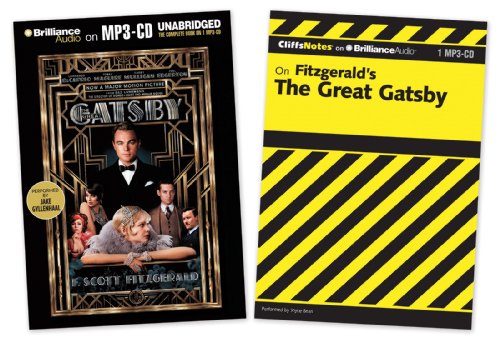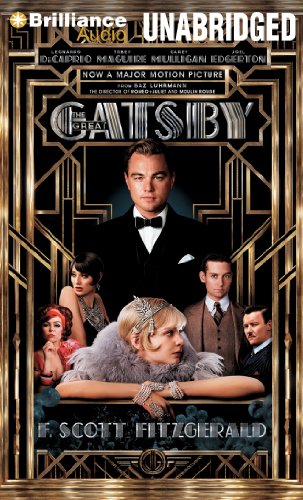
The Great Gatsby: F. Scott Fitzgerald’s classic American novel of the Roaring Twenties is beloved by generations of readers and stands as his crowning work. This new audio edition, authorized by the Fitzgerald estate, is narrated by Oscar-nominated actor Jake Gyllenhaal (Brokeback Mountain). Gyllenhaal’s performance is a faithful delivery in the voice of Nick Carraway, the Midwesterner turned New York bond salesman, who rents a small house next door to the mysterious millionaire Jay Gatsby. There, he has a firsthand view of Gatsby’s lavish West Egg parties – and of his undying love for the beautiful Daisy Buchanan. After meeting and losing Daisy during the war, Gatsby has made himself fabulously wealthy. Now, he believes that his only way to true happiness is to find his way back into Daisy’s life, and he uses Nick to try to reach her. What happens when the characters’ fantasies are confronted with reality makes for a startling conclusion to this iconic masterpiece. This special audio edition joins the upcoming film – as well as many other movie, radio, theater, and even video-game adaptations – as a fitting tribute to the cultural significance of Fitzgerald’s Jazz Age classic, widely regarded as one of the greatest stories ever told. The Great Gatsby CliffsNotes Edition: The CliffsNotes study guide on F. Scott Fitzgerald’s The Great Gatsby supplements the original literary work, giving you background information about the author, an introduction to the work, a graphical character map, critical commentaries, expanded glossaries, and a comprehensive index, all for you to use as an educational tool that will allow you to better understand the work. This study guide was written with the assumption that you have read The Great Gatsby. Reading a literary work doesn’t mean that you immediately grasp the major themes and devices used by the author; this study guide will help supplement your reading to be sure you get all you can from Fitzgerald’s The Great Gatsby. CliffsNotes Review tests your comprehension of the original text and reinforces learning with questions and answers, practice projects, and more. For further information on Fyodor Dostoevsky and The Great Gatsby, check out the CliffsNotes Resource Center at www.cliffsnotes.com. IN THIS AUDIOBOOK • Learn about the Life and Background of F. Scott Fitzgerald • Hear an Introduction to The Great Gatsby • Explore themes, character development, and recurring images in the Critical Commentaries • Learn new words from the Glossary at the end of each Chapter • Examine in-depth Character Analyses • Acquire an understanding of The Great Gatsby with Critical Essays • Reinforce what you learn to further your study online at www.cliffsnotes.com

